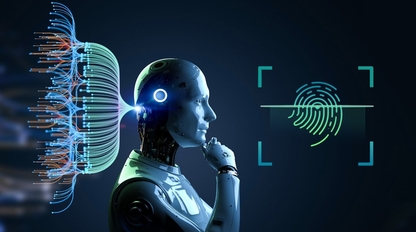The Present State of AI Technology:
* AI in Everyday Life
Today, AI is embedded in almost every aspect of modern life. AI-driven algorithms decide what we watch on Netflix, recommend products on eCommerce sites, and even help optimize our smart homes. Voice assistants like Siri, Alexa, and Google Assistant are making everyday tasks more convenient, learning from our behaviors to become smarter with each interaction.
* AI in Industries
Healthcare : AI has revolutionized healthcare through predictive analytics, early diagnosis, and personalized treatment plans. AI-powered tools like IBM’s Watson have helped doctors make quicker, data-driven decisions by processing vast amounts of medical data.
Finance: : AI’s role in detecting fraud, automating trades, and enhancing customer service through chatbots has transformed the financial sector. Predictive analytics help in better decision-making for investments and risk management.
Retail and eCommerce : AI enhances the customer experience by providing personalized recommendations, chatbots for customer service, and inventory management systems that predict stock requirements.
Manufacturing : Robots powered by AI are being employed in factories to streamline production processes, reduce human errors, and increase efficiency.
* AI Technologies Powering the Present
Natural Language Processing (NLP) : NLP allows machines to understand human language, making communication seamless in customer service, content generation, and voice assistants.
Computer Vision : This AI field enables machines to interpret visual data, leading to advancements in facial recognition, object detection, and medical imaging.
* Current Challenges and Ethical Concerns
While AI is undoubtedly making strides, there are significant challenges that come with it. Data privacy is a growing concern, as AI systems collect and analyze massive amounts of personal data. AI bias, where algorithms may produce unfair or discriminatory outcomes due to biased data, is another pressing issue. Furthermore, as AI becomes more integrated into the workforce, job displacement is a legitimate concern.

The Future of AI: What Lies Ahead?
* Autonomous Systems and AI in Transportation
The rise of autonomous vehicles promises to reduce accidents and optimize travel. AI-driven transportation systems will be able to predict traffic patterns and manage transportation networks more efficiently. AI is already powering self-driving cars, but the future will likely see fully autonomous public transportation, delivery drones, and robotic taxis.
* AI in Healthcare: Personalized Medicine
AI has already transformed the way we approach healthcare, but the future holds even more exciting possibilities. Personalized medicine, where treatment is tailored to an individual’s genetic makeup, lifestyle, and medical history, will become more prevalent. AI-powered tools will help predict diseases before symptoms even appear, allowing for earlier interventions and better patient outcomes.
* AI and Human Augmentation
The future of AI could involve even closer integration between humans and machines. Human augmentation refers to the use of AI and technology to enhance human capabilities. Whether through wearable technology or brain-computer interfaces, AI could help humans overcome physical limitations and enhance cognitive abilities, revolutionizing fields like education and healthcare.
* AI in Creative Industries
AI’s future role in creative fields like art, music, and literature is promising. AI algorithms are already being used to generate music and create artwork, but as these systems evolve, they may assist artists in new ways, becoming partners in the creative process.
* The Ethical Future of AI
As AI advances, ethical considerations will become increasingly important. Governments and organizations will need to regulate AI development to ensure that it is used responsibly and ethically. This includes addressing biases in AI systems, ensuring transparency in decision-making processes, and preventing misuse, such as in autonomous weapons systems.

The Potential Risks of Future AI
While AI has the potential to bring about positive changes, there are also risks associated with its future development :
Job Displacement : Automation will continue to impact industries, potentially leading to large-scale job losses. The challenge will be retraining workers and ensuring new opportunities arise in AI-driven industries.
Autonomous Weapons : AI in warfare poses a significant risk. Autonomous weapons systems could be used to make decisions without human intervention, raising serious ethical and safety concerns.
Surveillance and Privacy : As AI-driven surveillance systems become more advanced, there is a risk of eroding privacy. It will be crucial to strike a balance between technological advancements and individual rights.
Conclusion : AI’s Dual Impact on Society
The present and future of AI technology showcase both its transformative potential and its challenges. While AI has the capacity to revolutionize healthcare, education, transportation, and more, it also comes with ethical dilemmas and potential risks. As we move forward, it will be crucial to ensure that AI is developed and deployed responsibly, benefiting humanity while minimizing harm. The future of AI is bright, but it will require thoughtful oversight and regulation to ensure it improves lives and societies.


